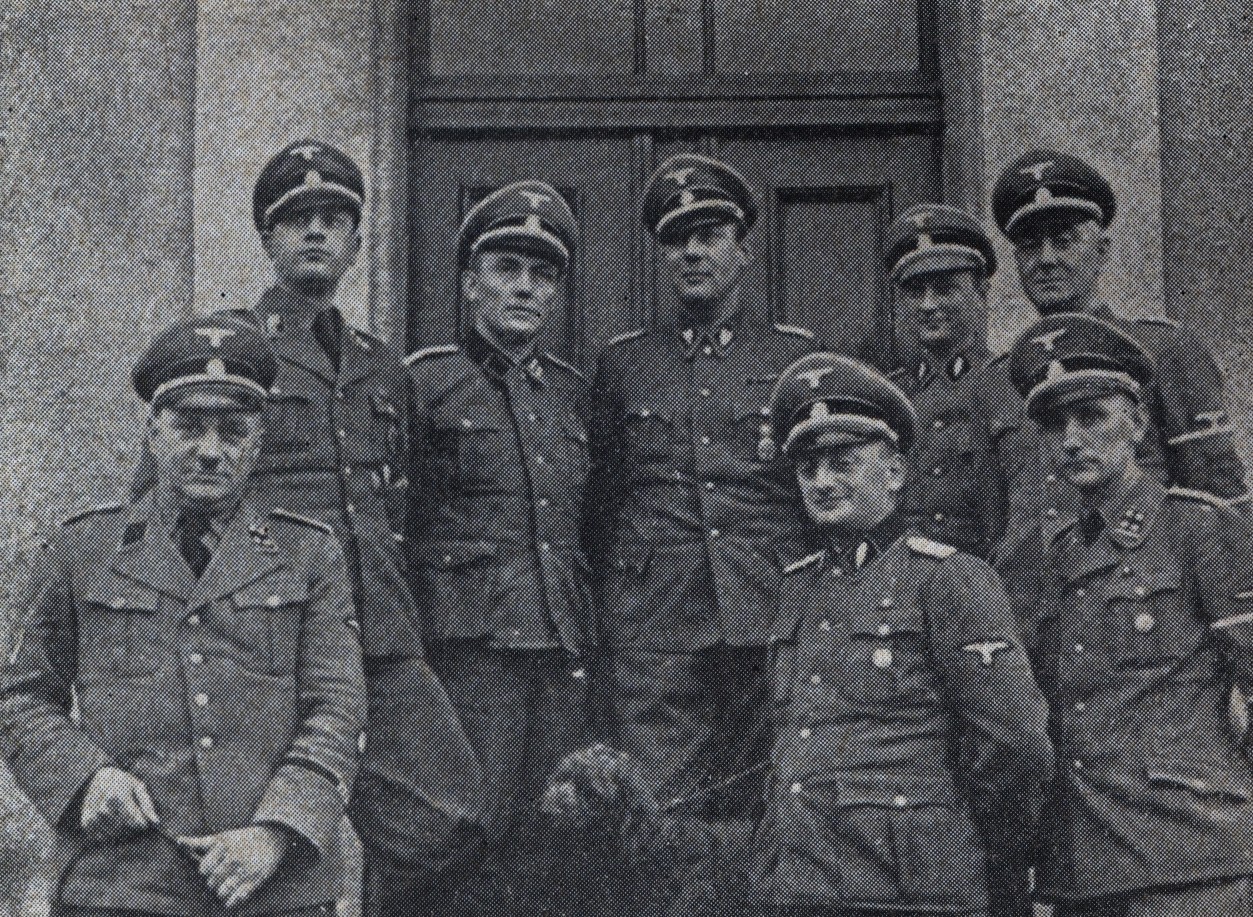|
Borowo, Kartuzy County
Borowo is a village in the administrative district of Gmina Kartuzy, within Kartuzy County, Pomeranian Voivodeship, in northern Poland. It lies approximately east of Kartuzy and west of the regional capital Gdańsk. It is located in the ethnocultural region of Kashubia in the historic region of Pomerania. History During the German occupation of Poland (World War II), the occupiers operated a subcamp of the prison in Kartuzy in the village. It was one of the places of imprisonment of Poles from nearby towns and villages who were arrested by the German gendarmerie, ''Einsatzkommando 16'' and ''Selbstschutz'' during the ''Intelligenzaktion The ''Intelligenzaktion'' (), or the Intelligentsia mass shootings, was a series of mass murders committed against the Polish people, Polish intelligentsia (teachers, priests, physicians, and other prominent members of Polish society) during the ...'' in 1939, before their executions in the nearby Kaliska forest. References Villages in ... [...More Info...] [...Related Items...] OR: [Wikipedia] [Google] [Baidu] |
List Of Sovereign States
The following is a list providing an overview of sovereign states around the world with information on their status and recognition of their sovereignty. The 205 listed states can be divided into three categories based on membership within the United Nations System: 193 member states of the United Nations, UN member states, two United Nations General Assembly observers#Current non-member observers, UN General Assembly non-member observer states, and ten other states. The ''sovereignty dispute'' column indicates states having undisputed sovereignty (188 states, of which there are 187 UN member states and one UN General Assembly non-member observer state), states having disputed sovereignty (15 states, of which there are six UN member states, one UN General Assembly non-member observer state, and eight de facto states), and states having a political status of the Cook Islands and Niue, special political status (two states, both in associated state, free association with New ... [...More Info...] [...Related Items...] OR: [Wikipedia] [Google] [Baidu] |
Gdańsk
Gdańsk is a city on the Baltic Sea, Baltic coast of northern Poland, and the capital of the Pomeranian Voivodeship. With a population of 486,492, Data for territorial unit 2261000. it is Poland's sixth-largest city and principal seaport. Gdańsk lies at the mouth of the Motława River and is situated at the southern edge of Gdańsk Bay, close to the city of Gdynia and the resort town of Sopot; these form a metropolitan area called the Tricity, Poland, Tricity (''Trójmiasto''), with a population of approximately 1.5 million. The city has a complex history, having had periods of Polish, German and self rule. An important shipbuilding and trade port since the Middle Ages, between 1361 and 1500 it was a member of the Hanseatic League, which influenced its economic, demographic and #Architecture, urban landscape. It also served as Poland's principal seaport and was its largest city since the 15th century until the early 18th century when Warsaw surpassed it. With the Partition ... [...More Info...] [...Related Items...] OR: [Wikipedia] [Google] [Baidu] |
Intelligenzaktion
The ''Intelligenzaktion'' (), or the Intelligentsia mass shootings, was a series of mass murders committed against the Polish people, Polish intelligentsia (teachers, priests, physicians, and other prominent members of Polish society) during the early years of the World War II, Second World War (1939–45) by Nazi Germany. The Germans conducted the operations in accordance with their plan to Germanization, Germanize the western regions of occupied Poland, before their territorial annexation to the Nazi Germany, German Reich. The mass murder operations of the ''Intelligenzaktion'' resulted in the killing of 100,000 Polish people; by way of forced disappearance, the Germans imprisoned and killed select members of Polish society, identified as enemies of the Reich before the war; they were buried in mass graves which were dug in remote places. To facilitate the depopulation of occupied Poland, the Germans Terrorism, terrorised the general populace by carrying out public, summary exe ... [...More Info...] [...Related Items...] OR: [Wikipedia] [Google] [Baidu] |
Selbstschutz
''Selbstschutz'' (German for "self-protection") is the name given to different iterations of ethnic-German self-protection units formed both after the First World War and in the lead-up to the Second World War. The first incarnation of the ''Selbstschutz'' was a German paramilitary organisation formed after World War I for ethnic Germans who lived outside Germany in the territories occupied by Germany and Austria-Hungary following the conclusion of the Treaty of Brest-Litovsk. The purpose of these units was to protect local ethnically German communities and, indirectly, to serve German security interests in southern Ukraine. Another iteration of the ''Selbstschutz'' concept was established in Silesia and aimed at returning Polish-inhabited territories back to Germany following the proclamation of the Second Polish Republic. In 1921, units of ''Selbstschutz'' took part in the fighting against the Polish Third Silesian Uprising. The third incarnation operated in territories of Ce ... [...More Info...] [...Related Items...] OR: [Wikipedia] [Google] [Baidu] |


